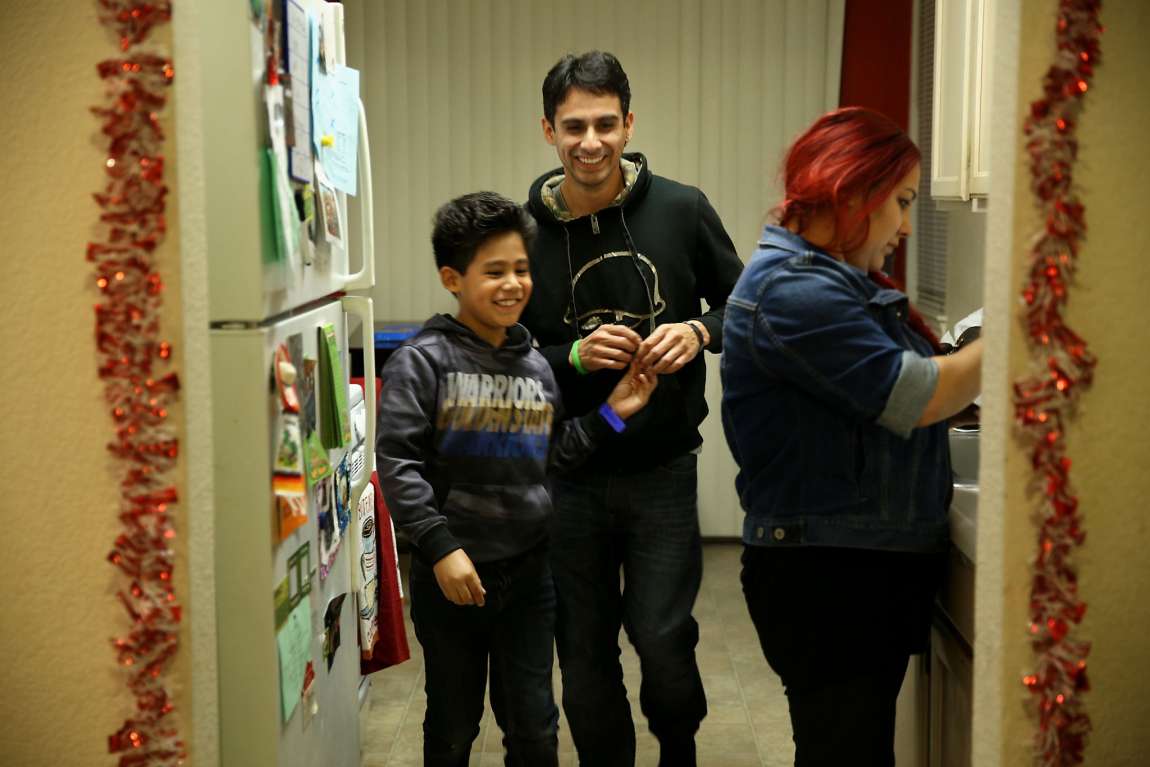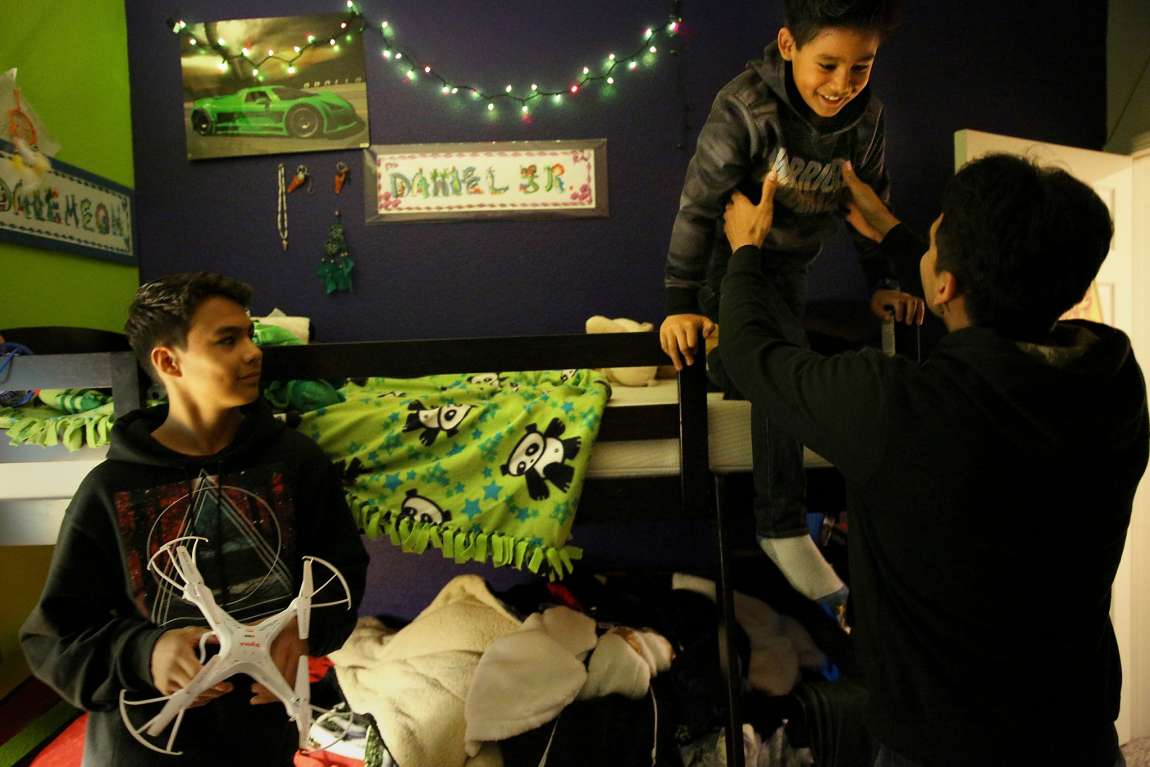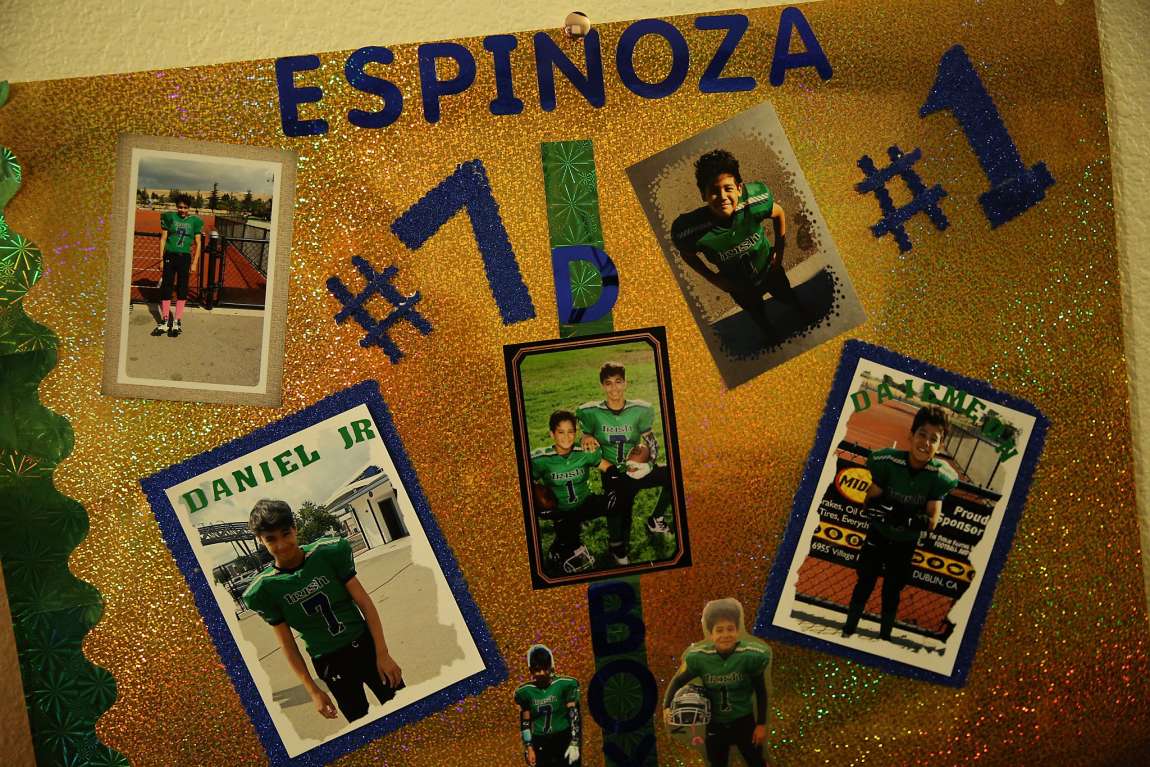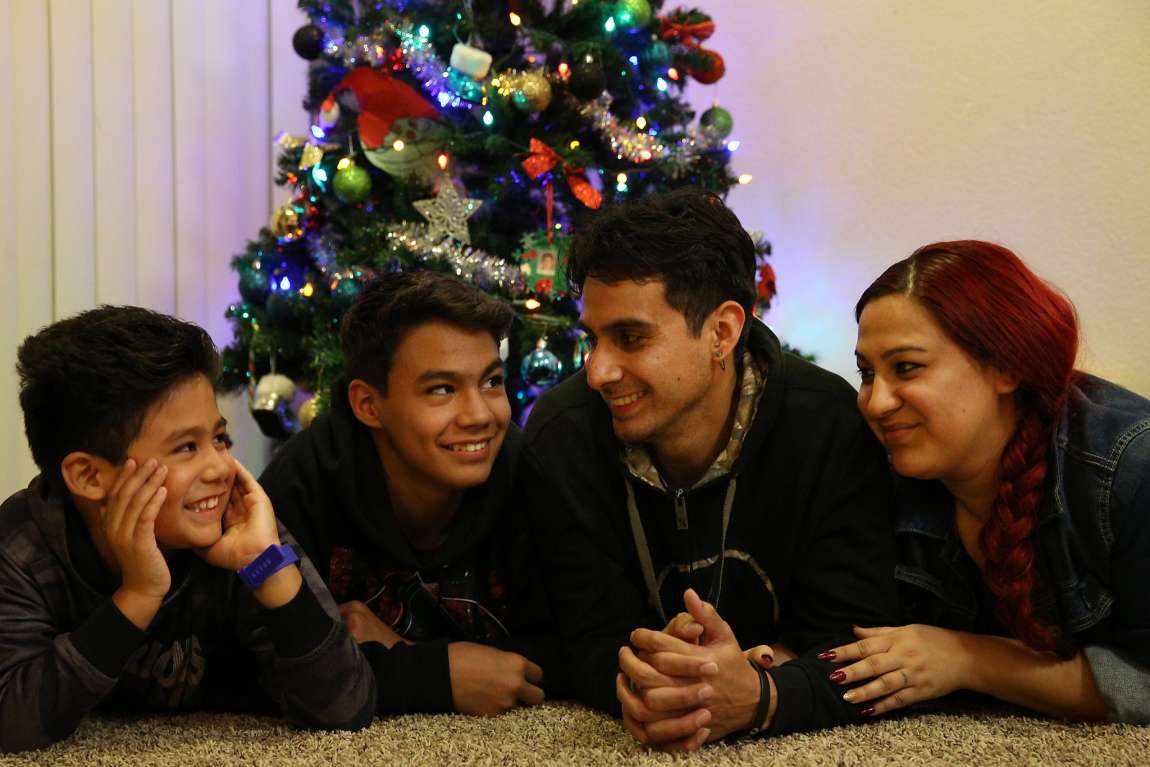
When Daniel Espinoza began working nights as a painter for Kaiser in February, he knew that his job would eat into time with his family.
But Espinoza needed the work, which meant not seeing his sons, ages 8 and 12, for more than a few minutes at a time during the week. So when an opportunity arose in April to spend an entire day with them, Espinoza jumped at it. They headed to the local skate park.
At some point while riding his board, the 31-year-old Livermore dad slipped backward and threw out his right hand to catch himself, bending his thumb backward in an unnatural way.
“He was like, ‘My hand hurts so bad, I think you gotta make me an appointment,’” said Elaine Espinoza, 30, his wife. “I was like, ‘Oh my God, stop being a baby.’ And he was like, ‘No, it really hurts.’”
The injury turned out to be a deep bone sprain, and it put Espinoza out of commission for almost a month. Espinoza said he tried to work, but his normal duties as a painter were impossible to carry out.
“Basically, my hands are my work,” he said. “If I don’t have both my hands, I can’t hold the rolling pole, brush, bucket, climb the ladder.”
Espinoza applied for disability and unemployment benefits, but didn’t initially get anything. Just three weeks without the income from his job in Vacaville put his family in a bind. The Espinozas quickly got behind on bills for their rent, braces and medical expenses for the boys, and other payments. The pile of “past due” notices grew.
During that time, we had literally no income,” she said. “I was like panicking, calling every place, any place that gave donations, even churches
Elaine Espinoza, a stay-at-home mom, said she considered going back to work, but it would have meant being away from her children, something she didn’t want. And a babysitter would have cost money they didn’t have. Plus, she said, with her husband’s schedule always changing, relying on someone else to watch the kids and take them to after-school activities at a moment’s notice would have been nearly impossible.
The Espinozas, who met in middle school and started dating in high school, had always lived in Livermore. Suddenly their ability to afford their two-bedroom apartment was in peril. Being evicted became a real possibility, the couple said.
“During that time, we had literally no income,” she said. “I was like panicking, calling every place, any place that gave donations, even churches.”
“We didn’t know what to do,” her husband added. “We were just stressed.”



But their apartment manager was understanding and directed them to The Chronicle’s Season of Sharing Fund, Elaine Espinoza said.
Damon Jones, who handled their case, said he sees families in similar situations on a monthly basis. When single-earner households subsist paycheck to paycheck, even the smallest interruption in their income stream can wreak devastation, he said.
“When it’s a one-person working household, it’s a rocky road to be on,” he said. “It’s one step away from being in the situation they’re in.”
Money from the Season of Sharing helped the Espinozas get fully caught up on their rent, giving them some financial leeway to begin paying off other bills.
“That was a relief, knowing I’d have a place for my wife and kids to be at,” Espinoza said.
It’s really hard not being able to see them,” he said. “But it’s basically you have a job and work nights, or you don’t have a job
But accepting help after a lifetime of self-reliance wasn’t easy, and the couple didn’t want their friends or relatives to know they needed assistance.
“Nobody knows we were struggling at that time. Nobody knows we got help,” Elaine Espinoza said. “I just didn’t want to tell or ask for money for any family things because I didn’t want them to look at my husband different.”
As 2016 came to a close, the family was still working to catch up on bills, but with Espinoza back at work, they found some stability.
Now they’re hoping Espinoza can move back to a normal daytime schedule so that he can see his children more regularly.
“It’s really hard not being able to see them,” he said. “But it’s basically you have a job and work nights, or you don’t have a job.”
